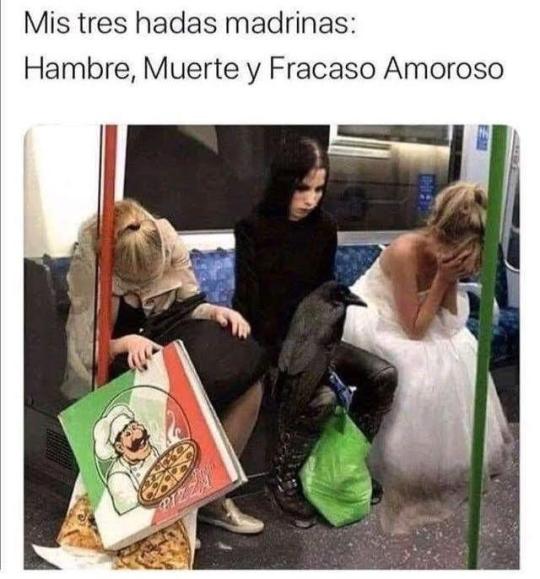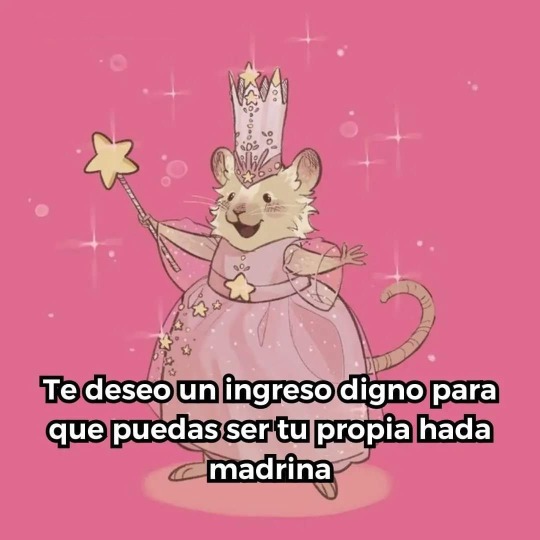#hadas madrinas
Text
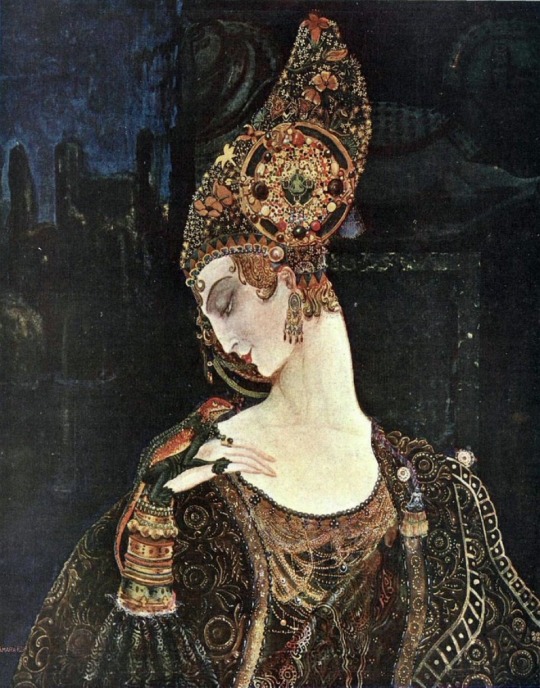
"El Hada Madrina." Manuel Bujados. La Esfera Magazine, Spain Oct 1915.
#las mujeres de rubén darío el hada madrina#manuel bujados#la esfera magazine#spain#oct 1915#spanish art#fine art#fantasy art#el hada madrina
158 notes
·
View notes
Text
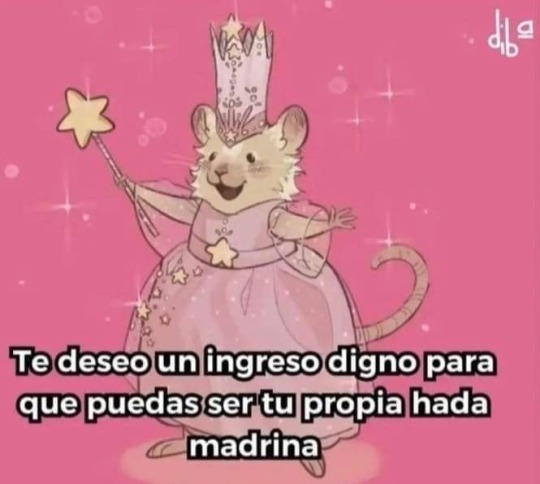
#tumblr mexa#todos mis motivos#méxico#frases#hada madrina#te deseo#el dinero si da la felicidad#dinero dinero dinero aprende algo dinero
3 notes
·
View notes
Text
mum asked me to play the bbc channel so she could check the aftermath of the coronation and stare at the horses from the parade 😭😭😭😭
#AYYYY MIRA QUE LINDOS LOS CABALLOS NEGROS COMO BRILLAN PARECEN OBSIDIANA#AYYY LOS BLANQUITOS ESTAN RE PULCROS QUE BONITOS LOS CABALLITOZ#y yo como AY MIRA EL CARRUAJE DEL HADA MADRINA DE SHREK#.txt
3 notes
·
View notes
Link
Viñeta: Hadas: Hada madrina Actúa como mentor o progenitor de alguien
0 notes
Text
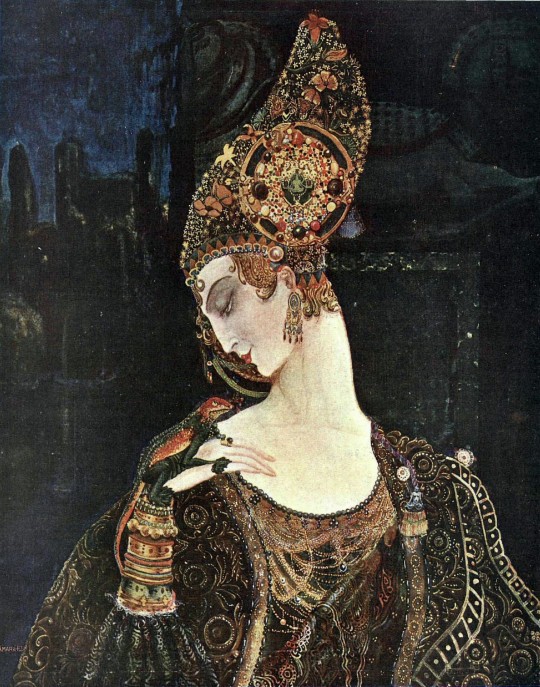
El Hada Madrina, from La Esfera Magazine by Manuel Bujados (Oct. 1915)
#manuel bujados#art#illustration#art nouveau#1910s#1910s art#vintage art#vintage illustration#vintage#spanish art#spanish artist#magazine#magazine illustration#la esfera#fairy tale#fairy tales#fairy godmother#golden age of illustration#classic art
2K notes
·
View notes
Text
Adjective Placement in Spanish Overview
With regards to adjective placement, I know I linked that bigger post I made about what the placement of adjectives generally mean but I'll give a very brief overview and if anyone has any specific questions please let me know.
IN GENERAL for like 70-ish percent of the time, adjectives go behind the noun in Spanish. These are your basic everyday adjectives that just describe nouns; el gato negro "the black cat", la mujer alta "the tall woman", los datos importantes "the important data", las tormentas peligrosas "the dangerous storms"
And again, IN GENERAL, if an adjective precedes the noun it is as if you bolded or italicized the adjective. It makes the adjective really stand out because of how out of the ordinary it is. It's very commonly used in poetry, writing, or for hyperbole:
La cruel realidad = The cruel reality
La fea verdad = The ugly truth
Mis sinceras disculpas = My sincere apologies
Mi más sentido pésame = My most heartfelt condolences/regrets
If you were looking at it more poetically you could think of "blue sky"... el cielo azul "the blue sky" is everyday Spanish, very typical. Saying el azul cielo "the blue sky" draws the eye to azul making it seem like "blue" is the most important or noteworthy thing about it
You typically see this kind of construction in everyday Spanish with expressions of gratitude, grief, horror, deep love, or any very strong emotions or when you're trying to make an impact
(More below)
-
Note: This will impact certain aspects of grammar, such as the nouns that are actually feminine but take a general masculine article such as el agua, el arma, el hada, el hambre, el águila etc.
As an example:
El hada madrina = Fairy Godmother
La buena hada = The good fairy
To further explain this rule - el hada is written with a masculine article. This is because it has its vocal stress on the first syllable and begins with A- or HA- [where H is silent]; and treating it as feminine would cause the sounds to run together, so the el adds a kind of phonetic break to preserve the sound; but in plural it will be las hadas "fairies/fey"
A word like this would still retain its normal functions as a feminine word, thus el agua bendita "holy water", el águila calva "bald eagle", el ave rapaz "bird of prey", and then in this case el hada madrina "fairy godmother"
By adding a separate word in front, you interrupt that la + A/HA construction and create a hiatus in the sounds already... so you can then treat it like a normal feminine noun, la buena hada "the good fairy"
You might also see this with grande "big" and its other form gran "great/large", el águila grande "the big eagle" vs. la gran águila "the great eagle"
-
Moving aside from the normal grammar, we now enter the exceptions. First - determiners.
There are a handful of adjectives that are known as determiners which come before the noun and they provide an important function in communicating things like number, possession, and location
The most common determiners include:
Definite articles [el, la, los, las]
Indefinite articles [un, una, unos, unas]
Possessives [mi, tu, su, nuestro/a, vuestro/a]
Demonstratives [este/esta, ese/esa/, aquel/aquella]
Interrogatives [qué, cuál/cuáles, cuánto/a]
(Also work as exclamatory determiners which just means ¡! instead of ¿?)
Cardinal numbers [uno, dos, tres, cuatro, cinco etc]
Ordinal numbers [primer/primera, segundo/a, tercer/tercera, cuarto/a, quinto/a, etc]
There are also a few determiners of quantity such as mucho/a "a lot/many/much", todo/a "all/every", cada "each", vario/a "various/many", poco/a "few/less", tal "such", tan "so much" / tanto/a "so many", algún/alguna and ningún/ninguna etc.
And it will generally apply to más and menos "more" and "less", and sometimes mejor/peor "better/worse"
-
Note: With possessives is that there are two forms depending on adjective placement:
mi amigo/a = my friend
mis amigos / amigas = my friends
un amigo mío = a friend of mine
una amiga mía = a friend of mine [f]
unos amigos míos = a few friends of mine
unas amigas mías = a few friends [f] of mine
All the pronouns have their own version of this possessive pattern
mi(s) and mío/a, tu(s) and tuyo/a, su(s) and suyo/a, and then nuestro/a and vuestro/a are the same but the adjective placement is different
As an example - nuestro país "our country" vs. el país nuestro "the country of ours", or nuestros familiares "our family members" vs. unos familiares nuestros "some family members of ours"
A common religious example - Nuestra Señora "Our Lady" and then el padrenuestro "the Our Father prayer"
The possessives that come after the noun are usually translated as "of mine/yours/his/hers/ours" etc.
You can also see a few determiners/adjectives in different places in a phrase like - un viejo amigo mío "an old friend of mine" vs. mi viejo amigo "my old friend"
-
As mentioned in the very beginning there are a handful of exceptions
Most notably:
viejo/a = old / elderly
antiguo/a = ancient, old / antique, old
mismo/a = same / self
gran = great, grand
grande = large
And includes propio/a "own / appropriate", as well as bueno/a "good" or malo/a "bad". I discussed a lot of these in more depth in the previous posts and in the one linked above
In many cases the exact meaning is different, even if it's slight - such as el hotel grande "the big hotel" vs. el Gran Hotel "the Grand Hotel"
bueno/a and malo/a are generally either "good" and "kind", or "bad" and "unkind", though the meanings can kind of blur together... as something like la buena hada "the good fairy" isn't so far off from el hada buena "the nice fairy"
When places before though bueno/a turns to buen + masculine, and malo/a turns to mal + masculine
As an example - un buen augurio "good omen", un mal presagio "a bad omen/portent"
.....but in feminine it looks like you'd expect: buena suerte "good luck" vs. mala suerte
Similarly, and one I didn't include the first time is cualquier/cualquiera
cualquier persona = any person
una persona cualquiera = an ordinary person
cualquier in front - regardless of gender - means "any", literally "whichever"
cualquiera in back comes out as "ordinary" or colloquially "any old" [such as un beso cualquiera "an ordinary kiss" / "any old kiss"], or in the case of people it could be like "a person of dubious/unknown background" sort of like "they could be anyone"...
-
And then you run into what I would consider "collocations" which is another word for a set noun or expression
There are some words/expressions that have the adjective in a specific place and you can't really change it or it sounds weird, so you sort of have to learn them as specific units to remember:
las bellas artes = fine arts [lit. "beautiful arts"]
(de) mala muerte = "backwater", "poor / middle of nowhere", a place of ill repute or somewhere very remote or inconsequential [lit. "of a bad death"]
a corto plazo = short-term
a largo plazo = long-term
(en) alta mar = (on) the high seas
alta calidad = high quality
baja calidad = low quality
Blancanieves = Snow White (the character/fairlytale)
la mala hierba, las malas hierbas = weeds [lit. "bad grasses"; plants that grow without you wanting them to or that grow in bad places etc]
los bajos fondos = criminal underworld [lit. "the low depths"]
el más allá = "the great beyond", "the afterlife" [lit. "the more over there/beyond"]
buen/mal augurio = good/bad omen
buen/mal presagio = good/bad omen
buena/mala suerte = good/bad luck
...Also includes all the greetings like buen día / buenos días or buenas noches etc. they're all considered set phrases
There are also many collocations that use adjectives in their normal place that also can't be separated such as los frutos secos "nuts", or el vino tinto/banco "red/white wine" etc.
A collocation just means that they are treating multiple words as set phrases or a singular unit
And again, some history/geographical terms will have these as well:
la Gran Muralla China = Great Wall of China
la Primera Guerra Mundial = First World War
la Segunda Guerra Mundial = Second World War
el Sacro Imperio Romano = Holy Roman Empire
la Antigua Grecia = Ancient Greece
el Antiguo Egipto = Ancient Egypt
(el) Alto Egipto = Upper Egypt
(el) Bajo Egipto = Lower Egypt
Nueva York = New York
Nueva Zelanda = New Zealand
Nuevo México = New Mexico
Nueva Escocia = Nova Scotia [lit. "New Scotland"]
la Gran Manzana = the Big Apple [aka "New York"]
Buenos Aires
There are many such terms
#spanish#langblr#spanish language#learning spanish#spanish grammar#learn spanish#long post#spanish vocabulary#vocabulario
59 notes
·
View notes
Text
“SI TE HABLO DE AMOR, QUE SEA EN ARTE Y POESÍA”
Si peleamos en esta guerra, tal vez no nos quede nada
pero si no lo intentas, ¿qué podemos ganar?
sin ganas cualquiera puede perder la batalla
me atreveré a dar un paso, aunque el miedo en mí esta
Convierto a mis miedos en letras, a mis heridas canciones de cuna
por qué mi corazón es una cueva y mi poesía la puerta
donde puedes entrar, quedarte y ver mi obra maestra
donde todo es arte, donde ya no existen las lágrimas ni la tristeza
Ven cariño, siéntate aquí a mi lado, que yo te explico cada trazo
cada trazo que doy con mis pinceladas, el lienzo sigue en blanco
te permito ser tú quien dirija las líneas, que yo manejo los versos
¿te das cuenta? En tu compañía, el arte brilla más en mi mundo taciturno
Sé la taza de café, que yo te endulzo
quiero ser el cielo, y tú mi secreto más profundo
las estrellas testigos de nuestro hablar silencioso
mantenemos el suave baile a través del hilo infinito, ¿o finito?
Somos exclamación en un mundo de signos de interrogación
a base de tantas palabras, hasta la poesía sentido perdió
en los tiempos de mi abuelo, existían cartas dirigidas al corazón
¿cómo fue que en la actualidad el amor se enfrío?
¿O fuimos nosotros quienes dejamos de creer?
ni Peter Pan dejó de creer en la magia
pero también entiendo que este mundo no es un cuento de hadas
mi hada madrina en este mundo se llama la poesía
— The Ghoust
#theghoust#frases#citas#notas#escritos#sentimientos#dolor#poesía#poemas#poemas de amor#letras#amor#enero2024
37 notes
·
View notes
Text

Soy de otro cuento!
No conozco el país de las maravillas,
ni tengo la belleza de Blancanieves,
tampoco el pelo largo de Rapunzel. ¡Y no canto como la sirenita!.
Yo vengo de otro lugar, ¡soy de otro cuento!.
Uno ¡llamado realidad!, donde las princesas se rescatan solas y besan sapos que nunca se volverán príncipes.
¡No buscamos un príncipe! queremos un hombre de verdad.
Un ogro como Shrek, ¡que se juega la vida por su Fiona!, un loco, ¡un Quijote de la Mancha!, que pelea a muerte por su amada Dulcinea.
¡No queremos siete enanos!, tampoco palacios y castillos, ¡nos basta un ser como la bestia!, que nos ame como él ama a Bella.
¡Soy de otro cuento!,
uno mucho más bello, donde no hay dragones, ni hadas madrinas, tampoco pócimas de amor, ni hechizos que te solucionen la vida.
Mi cuento no siempre termina en...
¡Fueron felices para siempre!, aquí se llora, y muchas veces se sufre, pero se aprende.
Lo que sí hay en mi cuento.
¡Es magia!.
Puedo romperme, quedar hecha pedazos, ¡pero reconstruirme!.
Como ves, mi cuento es diferente, porque yo lo escribo...
¡Y en este cuento, la Bruja soy yo! 💃💝
—-☮️
43 notes
·
View notes
Text
Ok, I know I've been inactive, but I've seen a pattern in the Mr. Puzzles episodes, They are like from the 90's Or in those 1900s
Ok, sé que he estado inactiva, pero he visto un patrón en los episodios de Mr. Puzzles, son como de los años 90.
(∆SPOILERS∆) spanish and English | español e inglés
------------------------------------------------------------
For example / Por ejemplo
Mario's mysteries/ blue's clues --> 1996
Mario's mysteries/ las pistas de blue ---> 1996
Once upon an smg4 ---> It can refer to films such as Disney's Sleeping Beauty, Cinderella, In the 1900s
Once upon an smg4 --->Puede referirse a películas como La Bella Durmiente de Disney, Cenicienta, En el siglo XX
Scooby Mario , where'd You go! / Scooby Doo , where are you! ----> 1969
Scooby Mario , where'd You go!/ Scooby Doo, dónde estas! ---->1969
Mr puzzles ' incredible Game show spectacular!
---> Probably is a parody those shows Where you participated to win, such as who you wants to be a millionaire in it 1998
Mr puzzles ' incredible Game show spectacular!
--->Puede parodiar esos programas en los que participaste para ganar, como quién quieres que sea millonario en 1998.
------------------------------------------------------------
Time to analyze/tiempo de analizar
It is noticeable how it has more and more prominence in each show that we advance, in Mario's mysteries appears as a character who gives a little help, in Once upon an smg4 is the main secondary character since she is the fairy godmother of Smg3 and the "mirror" of Smg4, And in Scooby Mario, Mr. Puzzles already appears as the character who summoned the gang, that is, the one who caused all this. And in today's episode (for the day I am writing this) Mr.puzzles is already the host of the show, so we can conclude that Mr.puzzles wants to take center stage, that everyone recognizes him, and above all why he is obsessed with the ratings of his shows.
Se nota como cada vez tiene más protagonismo en cada show que avanzamos, en "Mario's mysteries" aparece como un personaje que da una pequeña ayuda, en "Once upon an smg4"es el personaje secundario principal ya que es el hada madrina de Smg3 y el "espejo" de Smg4, y en "Scooby Mario", Mr. Puzzles ya aparece como el personaje que convocó a la pandilla, es decir, el que provocó todo esto. Y en el episodio de hoy (del día que escribo esto) Mr.puzzles ya es el presentador del programa, por lo que podemos concluir que Mr.puzzles quiere tomar protagonismo, que todos lo reconozcan, y sobre todo por qué está obsesionado con los ratings de sus programas.


Both the banner and the website changed by the end of today's episode
Tanto el banner como el sitio web cambiaron por el final del episodio de hoy.
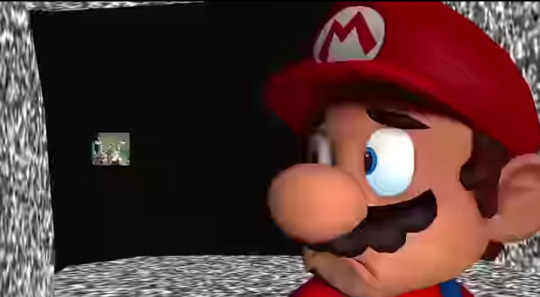

This ending /este final
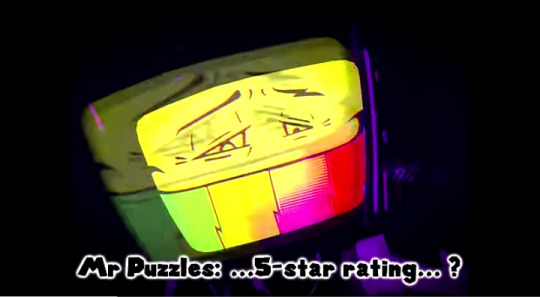
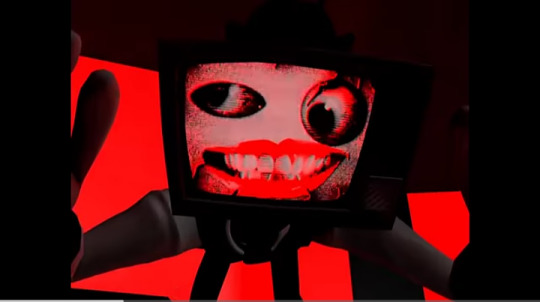
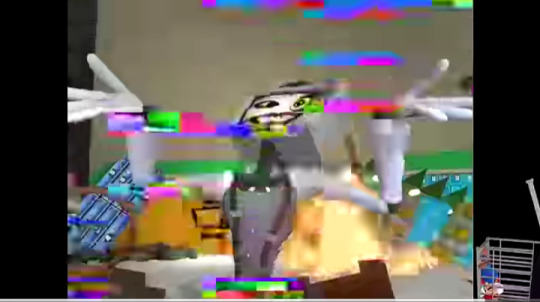
Here we can see how the "stupidity" of our protagonists drives Mr.puzzles increasingly crazy.
Aquí podemos ver como la "estupidez" de nuestros protagonistas enloquece cada vez más a Mr.puzzles.

I know it doesn't have much to do with it, but Tari hasn't shown signs along with clench that they are working on anything about it, but I still have faith in them 😭
Sé que no tiene mucho que ver, pero Tari no ha dado señales junto con clench de que estén trabajando en algo al respecto, pero todavía tengo fe en ellos 😭

And with today's episode, in the end, perhaps they are giving us to understand that Mario freed himself from Mr.puzzles' control (I have faith that Smg3 and Tari are going to have something to do with this 😭😭😭
Y con el episodio de hoy, al final quizás nos estén dando a entender que Mario se liberó del control de Mr.puzzles (tengo fe en que Smg3 y Tari van a tener algo que ver 😭😭😭)
That would be all my analysis 😼, please make it Saturday again 😭😭
Ese sería todo mi análisis 😼, por favor que sea sábado nuevamente 😭😭

13 notes
·
View notes
Text
They looked down at the pink paper clutched in their hand with a sigh.
Fired on their birthday. Again.
They wondered if this would be a pattern going forward. At least they were eighteen now. A lot more jobs were available to them now that they weren't a minor anymore. Maybe they could get another job with Zoraxis by telling them about their mechanical experience. It worked with the language thing.
They looked back at the handwriting hidden on the back of the notice.
It's a shame to hear you were let go again, Mr. Brown.
(They weren't a mister, but whatever.)
I assume you are looking for another job?
Meet where the buildings obscure the stars, and you may find your new life.
Under that was a hastily scribbled address in red pen and the words Sorry, the di he speaks mostly in riddles. Meet here!
Normally, they would never listen to sketchy advice written on the back of a termination notice by Mr. Di the Riddle guy. They may not have completed high school, but they weren't an idiot. Never go into a creepy alleyway at night or the evil hook man will eat your liver. Those were just the rules of the world.
So why were they here now?
"Eres una idiota, lo sabes?"
They crumbled the paper and threw it in the nearest dumpster.
"Why am I wasting my time? It's not like a hada madrina is gonna appear and solve all my problems for me. Maldita sea, Trevor. Use your brain for once in your life."
"Trevor, you say?"
They froze.
A man with a pistol stepped out from the shadows, a cocky grin on his face.
"Ya know, my boss really wants to talk to a 'Trevor'."
They backed up and raised their hands.
"Look, man, I don't have any money, and last time I checked I paid back that mob boss-"
Their back hit something and they instinctively looked up at another man blocking the way.
(Curse their shortness.)
"Oh, we don't want money."
Three more men walked forward into the dim light. All of them had guns. They were surrounded.
"We're here to kill a pest."
This is part 1 of a series about how my Phoenix joined the agency
Part 2 soon (hopefully)
#agent phoenix#i expect you to die#ieytd#oc lore#lore post#don't worry I'm eighty percent sure they live
11 notes
·
View notes
Text
"No te asustes y tampoco te amoldes, vivo en los extremos de verte como un hada madrina o un ogro sin excepciones, pero quiereme como soy... El afecto sincero nunca tendrá fin"
#cosas de TLP

#tlp#trastorno limite de la personalidad#corazon roto#tristeza#trastornos mentales#soledad#ansiedad#colapso#depression tumblr
41 notes
·
View notes
Text
Me adentro en la biblioteca y presenció uno y muchos mundos :
un bosque encantado,
una hada madrina,
un dinosaurio en el parque,
una tortuga en marte,
El ratón pérez coleccionando dientes,
papa noel durmiendo en noche buena,
cenicienta con su principe,
y la bella durmiente en su sueño sin fin.
Un lobo feroz en la tienda,
un arcoiris en la antartida,
un buñuelo que habla.
Tina Lon
#pensamientos#frases#escritores#poemas#redcomunitaria#citas#comunidad#literatura#libros#marzo 2024#tina lon
12 notes
·
View notes
Text
¡Soy de otro cuento!
no conozco el país de las maravillas, ni tengo la belleza de Blancanieves,
tampoco el pelo largo de Rapunzel...¡no canto como la sirenita!.
Yo vengo de otro lugar,
¡soy de otro cuento!...
Uno ¡llamado realidad!,
donde las princesas se rescatan solas y besan sapos que nunca se volverán príncipes.
¡No buscamos un príncipe!...queremos un hombre de verdad,
un ogro como Shrek,
¡que se juega la vida por su Fiona!...un loco...¡un Quijote de la Mancha!, que pelea a muerte por su amada Dulcinea.
¡No queremos siete enanos!, tampoco palacios y castillos, ¡nos basta un ser como la bestia!...que nos ame como él ama a la bella.
¡Soy de otro cuento!,
uno mucho más bello, donde no hay dragones, ni hadas madrinas, tampoco pócimas de amor, ni hechizos que te solucionen la vida.
Mi cuento no siempre termina en...¡Fueron felices para siempre!, aquí se llora, y muchas veces se sufre, pero se aprende. Lo que sí hay en mi cuento...¡Es magia!.
Puedo romperme, quedar hecha pedazos, ¡pero reconstruirme!.
Como ves, mi cuento es diferente, porque lo escribo yo, lo único que no cambia, es que en él también hay una princesa...
¡Y en este la princesa soy yo! 💜
#citas en tumblr#princesa#mi vida#soy de otro cuento#uno mas bello#com más amor#ser felices#soluciones#el amor#eres magia#reconstrucción#asi es la vida#adelante#como siempre#realidad#mis citas#texto de amor#ser mejor#amor real#amor propio#mas amor#vida#siempre#amistades#sentimientos#demonios#felicidad#historia#ser uno mismo#libertad
86 notes
·
View notes
Text

Mi hada madrina
117 notes
·
View notes
